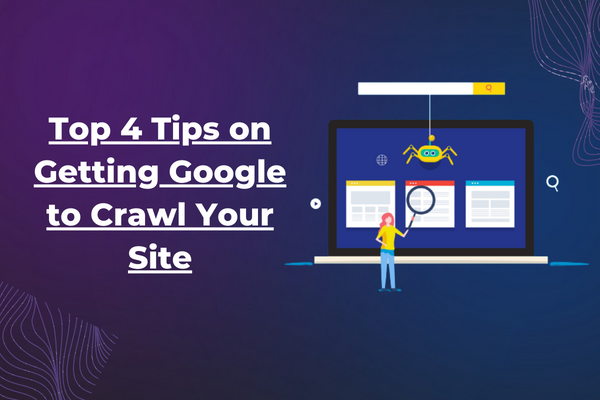Top 4 Tips on Getting Google to Crawl Your Site

Posted on 2023-07-17 17:21:53, by Seawind
In today's digital landscape,
having a strong online presence is crucial for the success of any business or
website. One of the key factors that determine your online visibility is search engine optimization (SEO), and at the core of SEO lies Google's web crawling
and indexing process. Google's web crawlers are responsible for discovering and
indexing new web pages, allowing them to appear in search engine results. In
this blog post, we will discuss the top four tips to optimize your website for
Google's crawling, helping you improve your website's visibility and reach a
wider audience.
- Create a Sitemap: A sitemap is a file that provides search engines
with a structured overview of your website's content. Submitting a sitemap
to Google makes it easier for their crawlers to discover and understand
your website's structure. A well-organized sitemap helps search engines
index your pages more efficiently, improving your chances of appearing in
relevant search results. There are various tools available that can help
you generate a sitemap, such as XML-Sitemaps.com or Yoast SEO plugins for
WordPress.
- Optimize Your Robots.txt
File: The robots.txt file is a
text file located in the root directory of your website that instructs
search engine crawlers on how to interact with your site. By optimizing
your robots.txt file, you can control which parts of your website are
accessible to search engines and ensure that they prioritize crawling your
most important pages. For example, you can block certain pages or
directories that contain duplicate or low-value content. However, be
cautious when modifying this file, as incorrect configurations can
unintentionally block important pages from being crawled.
- Use Internal
Linking: Internal linking is vital
in optimizing your website for Google's crawlers. By creating a network of
internal links, you guide search engine crawlers from one page to another,
making it easier for them to discover and index your content. Ensure your
internal linking structure is logical and intuitive, with relevant anchor
text describing the linked page's content. Additionally, periodically
check for broken links to avoid any crawl errors hindering your website's
visibility.
- Optimize Page Loading
Speed: Website speed is
crucial for both user experience and search engine crawling. Slow-loading
websites can deter users from staying on your site and negatively impact
your search engine rankings. Google's crawlers spend a limited amount of
time on each website, so it's essential to ensure that your pages load
quickly to increase the chances of complete indexing. Optimize your
website's loading speed by compressing images, minifying CSS and
JavaScript files, enabling browser caching, and choosing a reliable
hosting provider.
Conclusion: Optimizing your website for Google's crawling is
fundamental in improving your online visibility and organic search rankings. By
implementing the top four tips mentioned above, you can enhance your website's
chances of being crawled and indexed by Google, improving visibility in search
engine results.
Creating a sitemap gives
search engines a clear structure of your website's content, enabling efficient
indexing. Optimizing your robots.txt file ensures that search engine crawlers
prioritize crawling your most important pages while excluding duplicate or
low-value content. Utilizing internal linking helps guide crawlers through your
website, facilitating the discovery and indexing of your content. Optimizing
your page loading speed also ensures a smooth user experience and increases the
likelihood of complete indexing.
Remember that SEO is an
ongoing process, and staying proactive in monitoring and refining your
website's crawl ability will help you stay ahead in the competitive online
landscape. Keep up with the latest SEO best practices and algorithm updates to
optimize your website for Google's crawlers.
Following these top four tips
can improve your website's visibility, attract more organic traffic, and
ultimately achieve your online goals.

